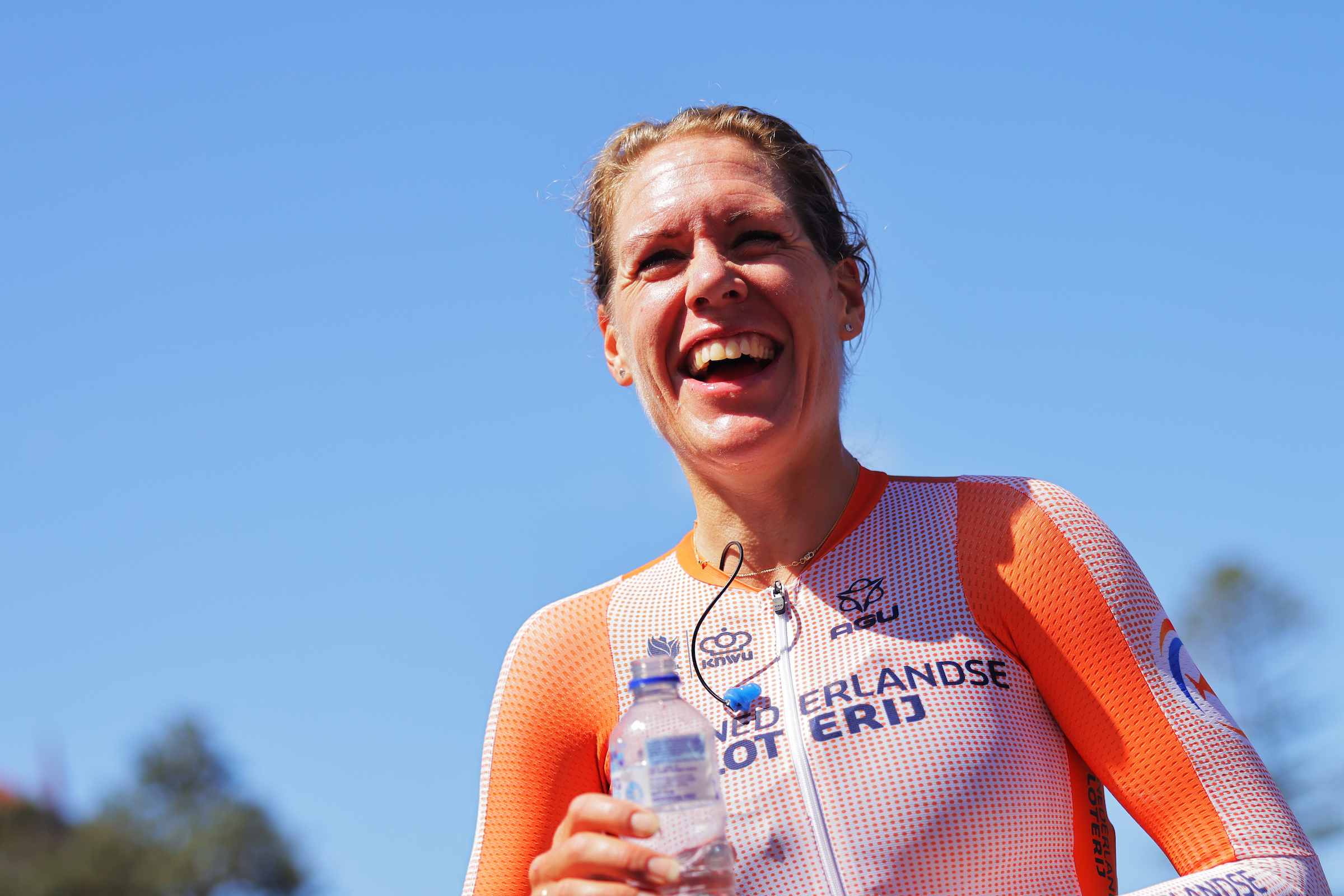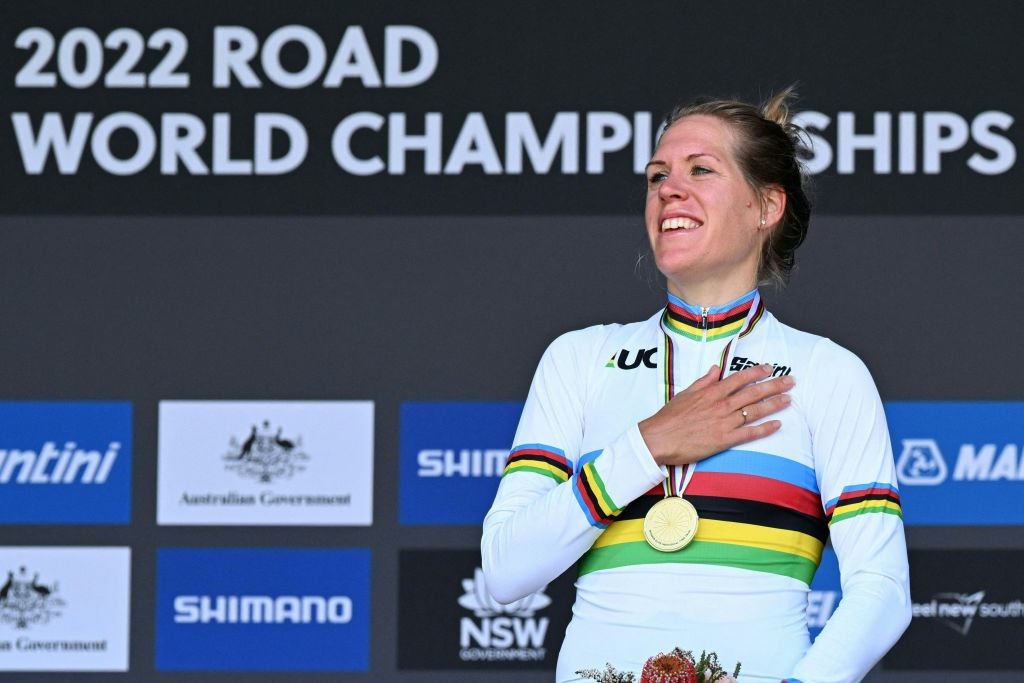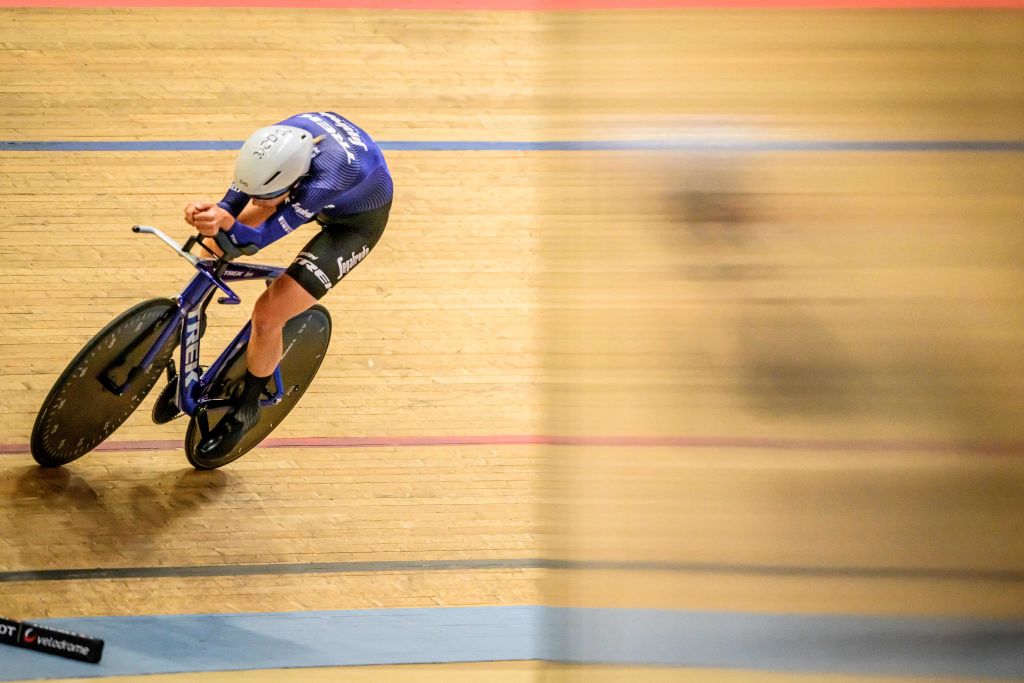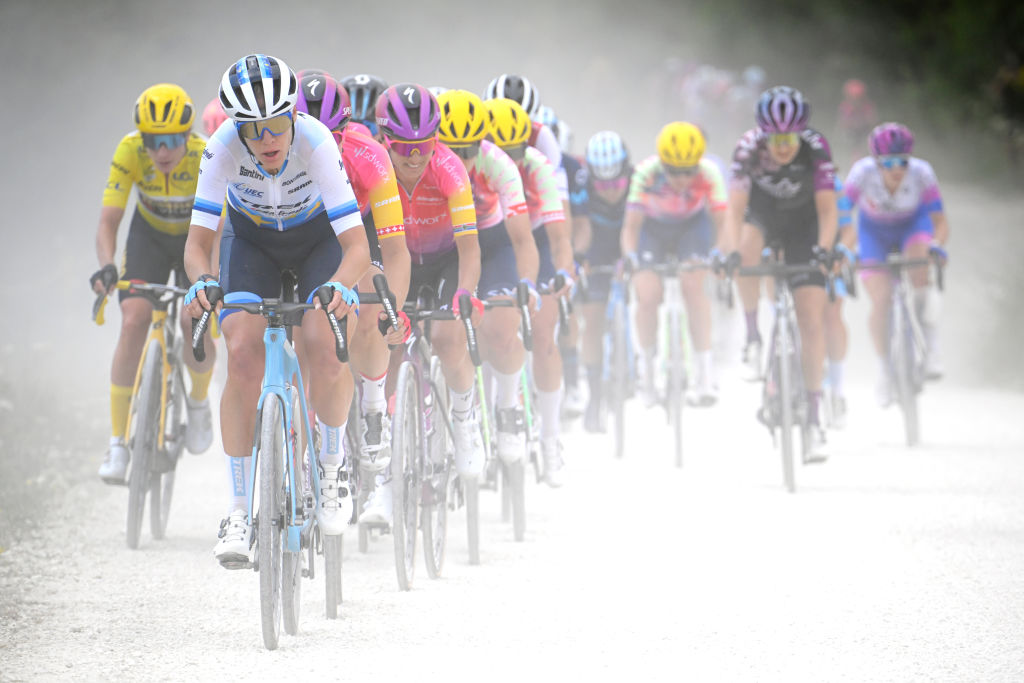Ellen van Dijk and the last pieces of the career puzzle
Triple World Time Trial Champion on her legacy, goals and 'staying relaxed'

For all she is 35 and has three World Championships titles and an Hour Record to her name, Ellen van Dijk (Trek-Segafredo) has an excellent one-word way of summing up the fact that she has reached a point where she can start thinking about leaving a legacy: “Weird.”
“Because it’s crazy for me to think about that, that’s why it’s weird,” the Dutch star tells Cyclingnews in a lengthy off-race interview when asked to explain her very succinct analysis. “But it’s even stranger that I have to start to do that.”
“I mean, I’m really happy with what I’ve done so far, particularly as the Hour Record has always been a big, big dream race for me. Then to win another World Time Trial title was the best and I just have such a passion for time trialling and it’s also my speciality, so I’m really happy I have a nice palmares in that speciality.”
“But,” and she hesitates a little, “now I’ve done all that.”
The consequences of reaching the time trialling heights that Van Dijk has attained is that no matter what happens next, she has plenty in the bag already. For the record, that’s a mere 40 time trial titles to date, not to mention successes such as a Tour of Flanders back in 2014 or a Ceratizit Challenge by La Vuelta overall.
She’s also got a solid reputation as an excellent teammate, born out of another career mission Van Dijk always keeps in mind, "helping them to do well, that’s always been important for me,” she says.
But while some athletes might want to sit on their laurels at such a high point, Van Dijk is doing too well and is too happy in her time trialling - in fact, I almost lose count of the number of times she says how much she adores racing chronos - to want to stop.
Get The Leadout Newsletter
The latest race content, interviews, features, reviews and expert buying guides, direct to your inbox!
That said, she says, it is “weird” to be thinking of a legacy, even though if she never turned a pedal in anger again, she’d already be counted as one of the sport’s very greatest all-time athletes.
“I definitely feel very relaxed now and I hope I can stay like that. Before I was feeling frustrated, like I was always saying, ‘I want to do this’ and/or ‘I still want to do that but it’s not working, why is it not working?’ But now I feel like I’ve reached what I wanted and what’s coming afterwards is a bonus,” she says.
“I had the same mindset for the Australian Worlds, so I know it works very well. Of course I’m still working hard, it’s not like I’m doing anything less in my training. But it feels more like, well, if I quit now I’m happy with what I achieved.”

She has some examples of longevity in the sport very close to hand of course: reigning cyclocross world champion Marianne Vos is 35, the same age as her and another top Dutch racer, Annemiek van Vleuten just celebrated her 40th birthday and is still at top of her game winning the Giro d'Italia Donne, Tour de France Femmes and the road race World title in 2022.
But Van Dijk says while she talks a lot to her compatriots of a similar age, she has no idea if she’ll stop at the end of 2024, when her recently re–signed Trek-Segafredo contract runs out, or if she’ll keep powering away.
“It’s hard to plan ahead," she says. “After 2021 I started to think 2022 would maybe be my last, but then I realised riding my bike and improving myself is the best thing for me.
“Also in this team, I have found myself. If that happens, when you feel at home when you’re with the team and you are happy doing what you do, then why change it?”
It’s a sign of Van Dijk’s love for her time trialling that she has a rare ability to make it sound interesting to the uninitiated. Why she prefers working on the track to working in a wind tunnel, for example, to improve her aerodynamics hardly sounds like a subject to get people rocking in the aisles.
But when Van Dijk explains it, you can sense how much it matters to her - and somehow that makes all the difference: as she says with a wry grin, “maybe that’s my purpose in life, to make time trialling more interesting.”
Wind tunnels out, velodromes in

“In the media they only talk about the wind tunnels,” she reflects,” and for the Hour it was very useful - testing suits, the bike and so on. But in real life time trials, where you have to look up, change your position and so on, it’s a different picture.”
Time trialling in such extreme conditions as an Hour Record is a two-way street of course, in that Van Dijk learned a lot for her usual road racing: “I had to look down all the time in the Hour and that was a big challenge, so I’m trying to do that in real time trialling as well,” she says. “But another, more important, thing I’ve taken away is the confidence you can handle that kind of pain for so long.
“At 50 minutes, you want to stop and you can’t,” she recalls. “ On the road, you can get out of the saddle, or go through a corner or brake. Anything.
“That’s a big difference, something I never experienced again…and those last 10 minutes in the Hour - I never want to do that again, for sure. It’s pain - everywhere.”
The fact that Van Dijk is still learning about time trialling might sound surprising, particularly she says one of the biggest improvement in her mental approach to racing came in around 2016, when she was working with the current Jumbo-Visma sports director Mervyn Zeeman. But turns out that even in 2022, thanks to what she laughingly calls ‘Team van Dijk’ - that’s her boyfriend Benjamin and her coach Josu Larrazabal, she is still progressing and finding out more.
It’s been a long road, though. After starting time trialling as a speed skater in her teens, she realised “pretty quick I was good at it, and then you start to believe you can ride at the highest levels.”
“Initially it’s not the nicest thing - just ride by yourself as hard as you can and suffer as much as you can. But I found I could put myself into that mindset and that made a big difference.”
Much of the depth of the pain which can be endured depends on the day, she says. “But I’ve got better over the years, I know how to control it. I say ‘hey, it’s pain, that’s time trialling, this is what I want.’”
“I’ve had years in which I wasn’t in a good mental space and things didn’t go well in my head. So for sure I needed physical ability but if mentally you’re not there, it’s impossible.”
Although we’ve been steering around the subject for quite some time, eventually it has to become clear what she is trying to achieve in the remainder of her career. The Tour de France Femmes time trial this july is one huge target, of course, but it turns out that the main aim of the last part of Van Dijk’s vast canvas of success will be two years hence in Paris.
“I made a big mistake in Rio in the time trial where I rode into the ditch and ended up fourth, so if I hadn’t done that it would have been gold or silver so that’s still a painful subject for me,” she recollects.
“Then I didn’t get selected for the Tokyo Olympic time trial, so this is something which still is a hole in my palmares.
“I would love to go to the Paris Olympics and perform well there. I hope I can keep my relaxed mindset until then, because that’s the best way to succeed.”
And as they like to say about Austin, Texas, if Van Dijk keeps ‘weird’ for a little while longer about her legacy, then so much the better.

Alasdair Fotheringham has been reporting on cycling since 1991. He has covered every Tour de France since 1992 bar one, as well as numerous other bike races of all shapes and sizes, ranging from the Olympic Games in 2008 to the now sadly defunct Subida a Urkiola hill climb in Spain. As well as working for Cyclingnews, he has also written for The Independent, The Guardian, ProCycling, The Express and Reuters.
